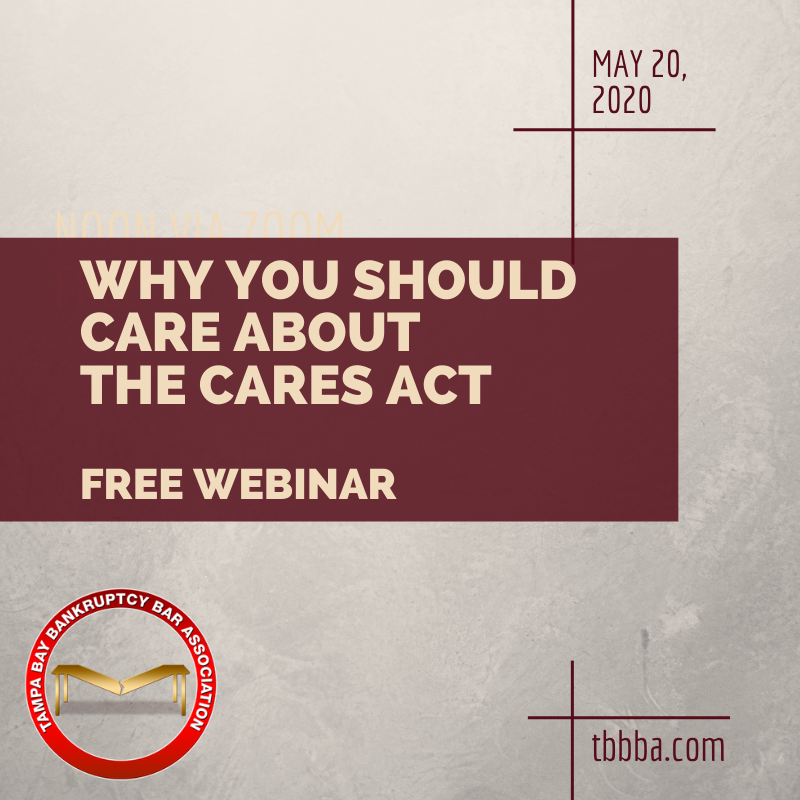| Webinar: Why you should care about the CARES Act
May 20, 2020 at Noon
The Tampa Bay Bankruptcy Bar Association will be hosting a FREE Webinar via Zoom on May 20, 2020 from 12:00 to 1:30pm. Why you should care about the CARES Act and its impact on Student Loans, Foreclosure, Collection, and Consumer and Business Bankruptcy. Christie Arkovich, Jake Blanchard, Nicole Mariani Noel and Chapter 13 Trustee, Kelly Remick, will discuss provisions of the stimulus bill that expand or create options for Debtors in Chapter 13 cases as well as Small Business Debtors under Subchapter V and many more. Panelists will also discuss foreclosure, forbearance, collection and student loan impacts. No cost to attend. This will be a live webinar and will not be recorded. Register here. Couldn’t come at a better time now that things are hoppin’ a bit more! I encourage our colleagues to register for local insight to help represent our clients the best we can in these trying times |
 Reboot Your Life: Tampa Student Loan and Bankruptcy Attorney Blog
Reboot Your Life: Tampa Student Loan and Bankruptcy Attorney Blog



